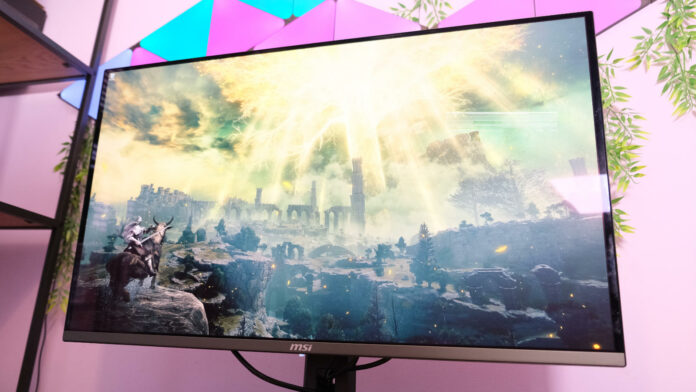OLED has a lot going for it. Fantastic colours, deep blacks, and a near-infinite contrast ratio aside, though, it’s far from perfect. The worry of burn-in leaving a permanent image lingers, especially if you’re using it with a Windows PC. Fortunately, that might soon be a thing of the past.
The University of Cambridge has designed efficient matrix-free narrowband blue emitters that don’t have the same constraints as a traditional setup. Publishing the discovery in Nature, the researchers explain how the new configuration essentially solves the dreaded ‘blue OLED problem.’
Blue organic light-emitting diodes (OLEDs) are important to the spectrum, but they have more problems than any other colour. Due to their unstable nature, they degrade faster and are more likely to give up the ghost. It boils down to unwanted energy passing between sensitizer and emitter molecules, stressing the panel and playing havoc with efficiency.
The solution is a blue diode that ditches the sensitizer component entirely, removing the need for a high-energy gap matrix. Instead, the new design places the diode along the narrowband spectrum with simple emissive layers and alkylene straps to insulate. Out with the old, in with the new.
We’re a while off from seeing this become a reality; it’s in research and a distance from slipping into development. Still, it offers an interesting solution that might make OLED panels both more reliable and more efficient. Anything that saves my electric bill is welcome, honestly.
If you can’t wait, don’t be put off buying an OLED in 2024. Just look at our MSI MPG 321URX QD-OLED review to see how many OLED Care settings there are to protect your gorgeous, expensive panel. Pair that with the fact most manufacturers now offer a warranty that lasts three years or more and covers burn-in, and you’re sorted.

